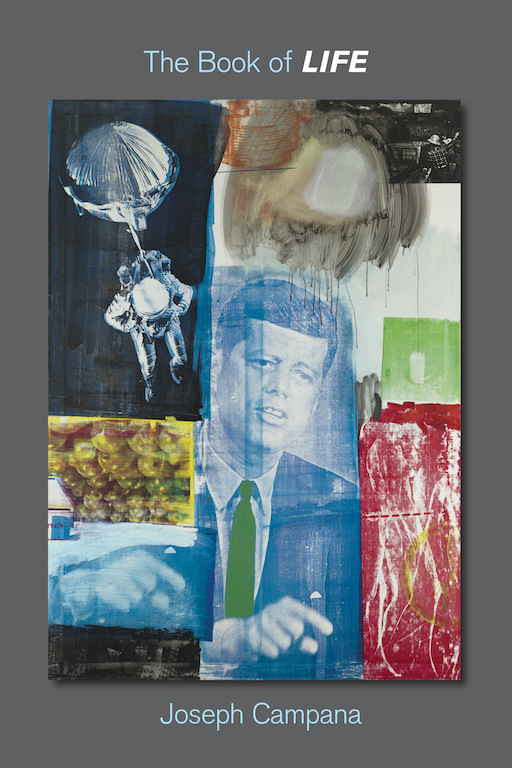A shirt loves a body the waya bracelet kisses a wrist, kissesthe tender flesh stretched overtendon and vein: a whole worldthrumming just below. Fingerslove motion the way the fleshloves the deep electrical twitchof the body involuntary, satisfiedwith itself and one at last witha music that loves to fill a roomthe way a piano loves Liberaceand Victor Borge. Chrysler lovessoldiers the way a mother lovesa child, which strangely enoughis not unlike the way Santa Clausloves toasters, deep fryers, coffeemakers, and electric razors all forthe gift of their shiny utility. Oh,Pyrex, oh Playtex: contain containcontain the ease of abundance,which loves to billow and filla house the very way a chimneyloves smoke, the way all conduitsof transport love vicious motion:the silky burn of a Pall Mallsearing like a car yearns forone great and final accelerationthat can release only into starryconflagrations under a watchfuldesert sun. The desert loves sunalmost as much as it loves secretsjust as a fugitive loves Texasand all solitary expanses ofpassage unimpeded by custom.Lovers love love and even morethey love to play dead. Imaginethe world whole and uninterruptedby a desire for witness, the worldindifferent to all things pertaining,the lovers now like statues buriedin the desert sand or hidden ina dark cave that aches for collapse.Chanel No.5 loves Chanel No. 5and wears nothing else to bed.Naked, at last, it is finally itselfalone, vapors free in the nightair and practically fire now,loving itself purely, the wayeveryone loves useless gifts,along with all other forms ofgenerosity indifferent to duty.Imagine that: someone lovedyou enough not to care, the waya train, uninterested in terminus,loves the interstitial hum oftracks. Certain of their own end,elephants love trains that speedfrom darkened tents. Pull backthe flaps if you dare: all thosecircles filled with the round “O”sof faces tormented by wonder,stretched by their own credulityuntil the body becomes a letterthat would tell you precisely howa body loves if only you couldread it. Slack-jawed, wide-eyed,open-mouthed: the body one greataperture. That’s how it loves,in the manner of the sky thatloves the foolish conveyancesof tiny creatures so ambitiousfor transport, and the sky lovesthem all, nearly as much asthe shirt, simple covering,loves the press of flesh beneathdiffident folds, loves the wayfabric caresses a body just asthe eye strokes the camera,a shoulder cradles a phone,and the phone tenderly carriesvoices gathering a line fromso far away. How could they soundso close? And it is just this close,the way a mother cradles the childshe sees she can no longer hold.
A Shirt Loves a Body
December 7, 1953
Feature Date
- August 27, 2019
Series
Selected By
Share This Poem
Print This Poem
Copyright © 2019 by Joseph Campana
All rights reserved.
Reproduced by Poetry Daily with permission.

Joseph Campana is a poet, arts critic, and scholar of Renaissance literature. He is the author of three collections of poetry, The Book of Faces (Graywolf, 2005), Natural Selections (Iowa, 2012), which received the Iowa Poetry Prize, and most recently the The Book of Life (Tupelo, 2019) from which this poem is selected. His poetry appears in Slate, Kenyon Review, Poetry, Conjunctions, Guernica, Michigan Quarterly Review, and Colorado Review, while individual poems have won prizes from Prairie Schooner and the Southwest Review. He has received fellowships from the National Endowment for the Arts, the Houston Arts Alliance, and the Bread Loaf Writers’ Conference. He has reviewed the arts, books, media and culture widely and is the author of dozens of scholarly essays on Renaissance literature and culture as well as a study of poetics The Pain of Reformation: Spenser, Vulnerability, and the Ethics of Masculinity (Fordham, 2012). He teaches at Rice University where he is Alan Dugald McKillop Professor of English.
The Book of LIFE finds inspiration in the pages of LIFE Magazine, from its origin in the Great Depression to its demise amid the Apollo missions, with many milestones between: the Korean War and Cuban missile crisis, the Vietnam War and immolation of Thich Quang Duc, and the Kennedy and King assassinations. LIFE’s compendium of the American century stretches from its initial cover, Margaret Bourke-White’s photo of the Fort Peck Dam in Montana, to its final, year-in-review issue covering the lunar mission, with an image of the Earth that awakened a planetary consciousness.
Using the lens of poet, arts critic, and scholar of Renaissance literature, Joseph Campana locates an individual life in the churning wake of these great events; he is a poet who persists in the hope of reawakening the past, while simultaneously finding and providing a guide for this journey called life.
“In poems that enact the heady rush of history, what we mean when we say “my life flashed before my eyes,” Joseph Campana gives us the world in swooning context. The Book of Life is at once an ecstatic accounting, a love poem ‘to love/what you can’t understand,’ an elegy for not only what is gone but also for what is steadily going. ‘That was/what lured me,’ he writes: ‘the song of the world disappearing before me….’ These poems are a marvel the way life itself is a marvel.”
—Natasha Trethewey, U.S. Poet Laureate, 2012-2014
Poetry Daily Depends on You
With your support, we make reading the best contemporary poetry a treasured daily experience. Consider a contribution today.




